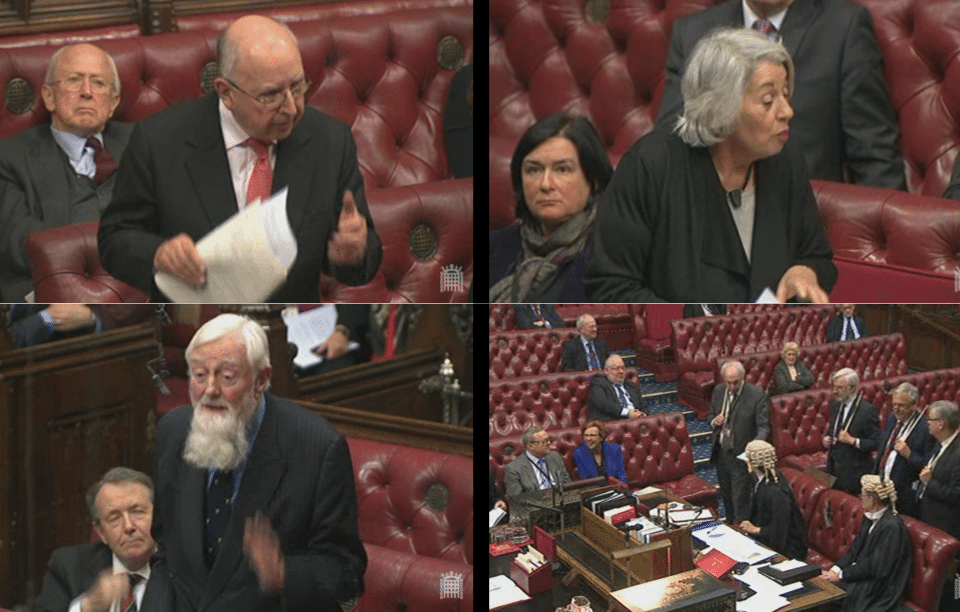Help our local partners realise their vision of hope for their communities

It was a successful day for many who had campaigned for the overturning of the 2012 amendment to the overseas domestic workers visa. As you may have seen, Kalayaan and Liberty set up a petition advocating for the change from a visa in which domestic workers are tied to that of their employer, leaving them vulnerable to exploitation. Many domestic workers in the UK under this visa are not paid, have no personal space, and work extremely long hours. They are vulnerable to abuse and, unable to leave, are effectively slaves. Under the current visa system, these workers are unable to escape abusive employers without becoming illegal immigrants. This visa changed from a world class example in 1998 to the current visa leading to a dramatic rise in cases of abuse in 2012. The House of Lords heard how women are too frightened to come to the authorities ‘now that they are undocumented’ for fear of ‘imprisonment and of deportation’. As a result of this fear, many prefer to stay with abusive employers than to seek help.
The Bill
The Modern Slavery Bill was brought to Parliament in July last year to aim to tackle trafficking and slavery in the UK and worldwide. It aims to improve safeguards for victims and contribute to the eradication of slavery globally through transparency in supply chains (For more information on the background of the Bill, reasons behind it and analysis leading up to the report stage, read this blog post). The Bill was read and amended in the House of Commons, before coming to the House of Lords for review. The report stage is the penultimate stage in the House of Lords where suggestions for change are tabled and voted on before a third reading. It is therefore the main opportunity to make vital changes that have so far been missed.
To eradicate the Overseas Domestic Workers Tied Visa
Amendment 90 to the Modern Slavery Bill (which is currently going through Parliament), tabled by Lord Hylton called for domestic workers to be able to change employer to take the power out of the hands of said employer, and give agency to the worker. This means that those that have been mistreated are not committed to their employer and are able to leave, demanding that overseas domestic workers must be treated fairly or they will escape. This option is not available under current legislation. The amendment was hugely supported by Peers such as Baroness Royall of Blaisdon who argued that amendment 90 would ‘end the unacceptable situation regarding the current visa system for overseas domestic workers.’
References were made to the programmes on BBC Radio 4 and ITV on the plight of overseas domestic workers in the UK, as well as evidence gathered from victims of this abuse and the impacts of the visa, which has been collected by Kalayaan, a charity working with domestic workers.
The Minister, Lord Bates announced a review of the visa and its impacts to be completed by the end of July as well as other changes being made to the visa legislation on the 26th February 2015 such as a new template contract (stipulating sleeping arrangements, minimum wage etc), interviews to be conducted on those entering the country on the visa, and an information card. He, along with others, argued that this would be sufficient provisions until the review was made and wanted to withhold creating new legislation until more evidence was reviewed.
However, it is clear that more people may suffer and be made victim of slavery made possible under the current visa system in the time it takes to conduct a review and make necessary changes to the law. It was therefore argued that it would be wrong to leave people vulnerable in this time, and that the legislation should be changed now whilst it is going through parliament, and then amended if necessary after a review takes place. Compelling and emotive arguments were made in support of the amendment, including Baroness Hamwe who admitted, ‘if I were not to support this amendment, I would feel complicit in slavery and servitude.’
After a divided house leading to a vote on the amendment, the amendment was agreed by 183 to 176 meaning that the Modern Slavery Bill will have better provisions for overseas domestic workers to escape abusive employers.
Further achievements
The report stage also covered transparency in supply chains and protection and support for victims. Many positive changes were made to the Bill including child trafficking advocates to be independent and appointed to a potential victim ‘as soon as reasonably practical’ to ‘promote the child’s well-being’ and ‘assist the child to obtain legal or other advice’. Regulations were made on ‘identifying and supporting victims’. Finally greater detail was given on statements to be made by companies regarding transparency of supply chains. Following the agreement on Amendment 97, there are clearer guidelines as to what these statements should include, as well as provision that these statements should be read and signed by company directors and/or partners depending on the type of company.
The report process of the Modern Slavery Bill has led to some valuable amendments although more could be done (particularly with reference to slavery in supply chains) to hold a stronger stance against slavery and greater support for victims. Change will be made one step at a time.
The next stage will be the third reading at the House of Lords which will take place on the 4th March 2015.
The House of Lords Hansard with the whole debate can be found here.
Follow this link to find the Modern Slavery Bill, as amended in committee (11/12/2014).